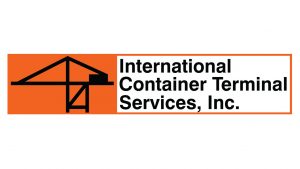Insurance’s significant roles in meeting the market’s demands for sustainability

In the face of an environmental crisis, the insurance sector is stepping up its game to foster sustainability and bring positive transformations. Insurance companies, in particular, are increasing green initiatives that offer environmental, social, and economic benefits, all while protecting the well-being of the public and environment.
For PA Consulting, a professional services group, responding to calls for sustainability efforts present a lucrative avenue for the sector to tap into.
“The insurance industry, as the provider of protection and risk management products, and as custodians of billions of pounds in premiums, has a major role to play shaping responses to sustainability and climate change challenges,” the company said in an article published on their website.
The insurance sector is found to be essential in assisting organizations as they embark on their sustainability journey. They play a key role in identifying and managing risks, as well as educating individuals and businesses on climate change and sustainability imperatives. It is crucial for insurers to take the lead in influencing sectors and customers towards sustainable practices.
In addition, the changing consumer behavior also plays a key factor in sustainability. For instance, the need for energy-efficient homes and electric vehicles is high in demand. Therefore, insurers are adapting their products to meet these changing preferences.
In response to the climate crisis being felt by all sectors, sustainable solutions are on the rise to fight against this. Research conducted by PA Consulting revealed that 86% of consumers value sustainability and are looking for financial service providers that integrate sustainability into their operations.
“The demand for greater sustainability is here to stay and presents significant upsides to the insurance industry. The time for insurers to act is now – demonstrate sustainability leadership and provide risk and protection solutions to support the world’s transition to net zero,” PA Consulting said.
To meet these needs, the sector must go beyond the basics. More than prevention and protection, consumers are also looking for insurance solutions that also include support after an event. Notably, PA Consulting said insurers “must consider providing more comprehensive products and solutions that consider sustainability across the value chain.”
Moreover, insurers need to think outside the box and come up with innovative solutions that make the most of sustainable opportunities. It is important for the sector to fully grasp how the climate crisis affects their clients, products, and channels.
Insurers must start with a well-defined vision, ambition, and strategy for sustainability; then practice how to mitigate new and emerging climate risks.
Also, insurers will need an established team for product development and design, digital capabilities that improve distribution and servicing, and exploring partnerships with client and other sectors. By developing the right skills and strategies, they can lead the way in sustainability and take advantage of the opportunities that arise.
Moreover, environmental, social, and governance (ESG) is found valuable to be integrated into their business strategies to shape their decision-making process.
According to assurance and business consultancy Ernst & Young (EY), using the ESG strategy is crucial, especially in assessing climate-related risks, expanding businesses, and protecting the environment.
“Several leading insurers are adapting their products for greater sustainability, aiming to reduce the protection gap, increase loss prevention and support green transition,” EY said in an article published on its website.
“By developing green products – not just greenwashing – you can demonstrate a tactical approach to sustainability. But you should also consider how to go further by embedding ESG factors across your full range of products and services,” it added.
By prioritizing ESG in their operations and goals, insurers can protect themselves from climate-related risks and pave the way for a more sustainable future.
“ESG regulation is also looming, which means understanding, measuring, and prioritizing ESG strategy is essential. Insurers must, therefore, rethink their businesses holistically and look across their entire value chain to address ESG-related risk, in a way that helps grow their business, enhance their brand and protect the planet,” EY advised. — Angela Kiara S. Brillantes



![Photo of [B-SIDE Podcast] The birth of the Filipino nation](https://redstateinvestings.com/wp-content/uploads/2022/08/Dr.-Paul-A.-Dumol-bside-300x169-IN1Yj8.jpeg)
